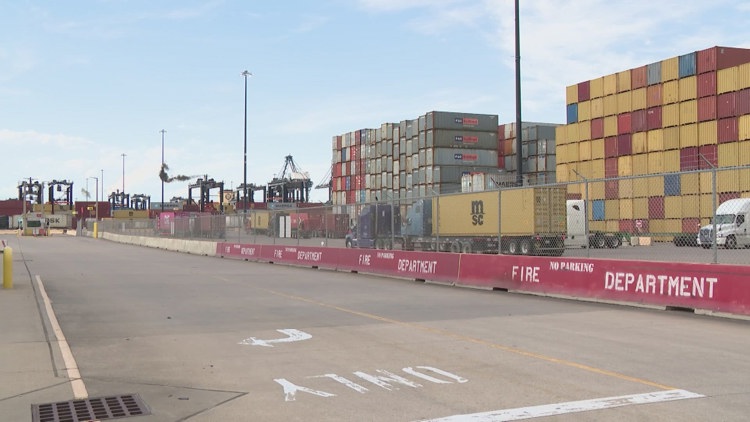
The Midnight Deadline Approaches for Dock Workers
The clock is ticking towards a midnight deadline, and if a deal isn’t reached between the U.S. Maritime Alliance and the International Longshoreman’s Association, a strike could begin on Tuesday.
This looming threat has been a focal point of our coverage over the past week. The contract negotiations have hit a roadblock due to demands for protection from automation and higher wages. The longshoremen’s union is pushing for a significant 77% wage increase over six years and a complete ban on automation for cranes, gates, as well as container loading and unloading.
An expert in the supply chain industry estimates that the United States could lose up to $5 billion per day if the workers go on strike, and it could take four to six days to clear up the cargo backlog for each day the ports are inactive.
If the negotiations fail and the master contract expires at midnight, ports on the Gulf Coast and other parts of the country could come to a standstill starting Tuesday.
Understanding the Issues Behind the Dockworkers Strike
The International Longshoremen’s Association is demanding higher wages and a total ban on automation at 36 U.S. ports that handle half of the nation’s cargo. The contract between the ILA and the United States Maritime Alliance expires on Tuesday, setting the stage for a potential strike, which would be the first by the ILA since 1977.
The impact of the strike would not only affect the ports directly involved but also have ripple effects on industries reliant on those ports for trade. Major ports like Baltimore, Brunswick, Philadelphia, New Orleans, and others would be among the affected facilities.
Potential Impacts on Consumers and Retailers
Consumers might not immediately feel the effects of a strike, but prolonged disruptions could lead to shortages and price increases for various goods. Retailers have been preparing for such scenarios since the 2021 supply chain disruptions and have contingency plans in place to mitigate risks.
While the government has the authority to intervene and temporarily halt the strike, President Biden has indicated he is not planning to use that power, leaving the outcome of the negotiations in the hands of the involved parties.
As the holiday season approaches, retailers and industry associations are closely monitoring the situation, aware of the potential impact on inventory availability, pricing, and consumer demand.
Ultimately, the resolution of the strike will have widespread implications on the economy, trade, and consumer behavior, making it a critical issue to follow in the coming days.

